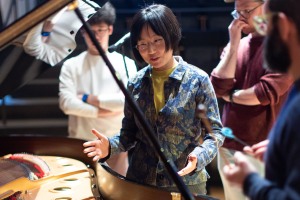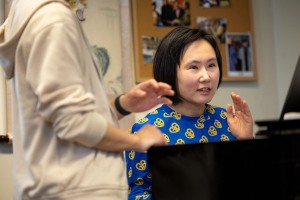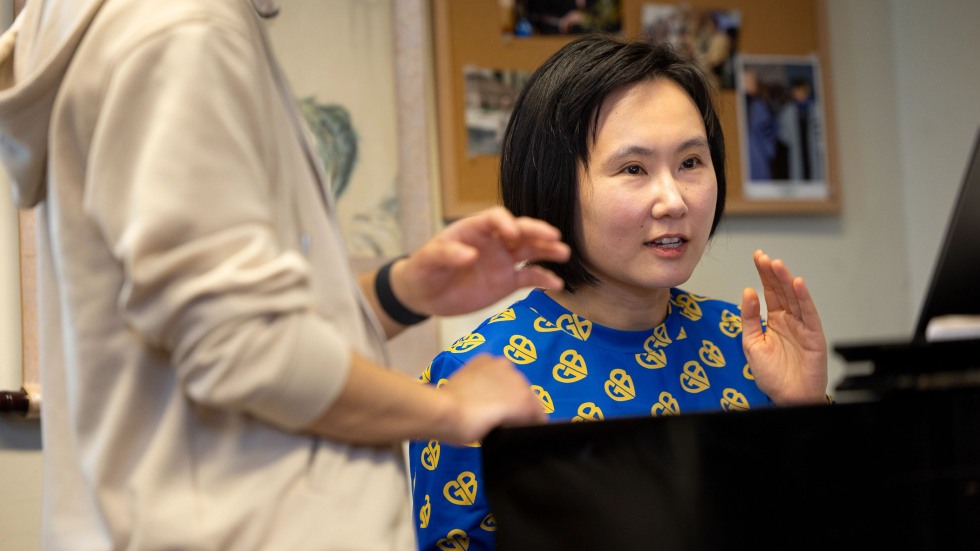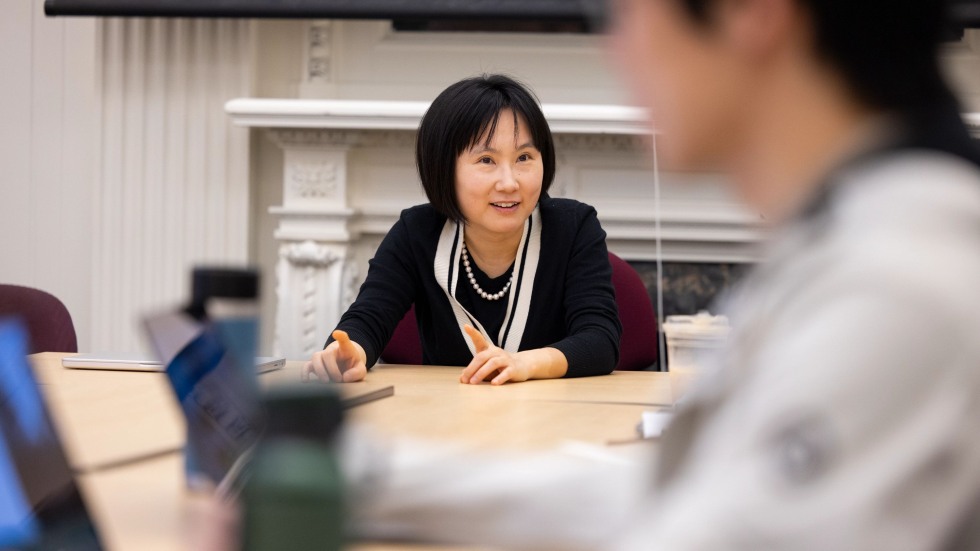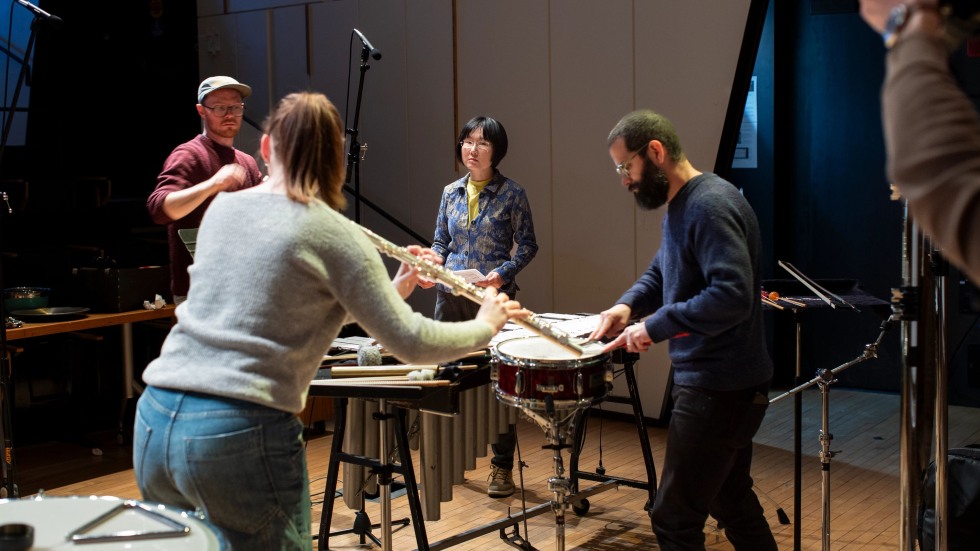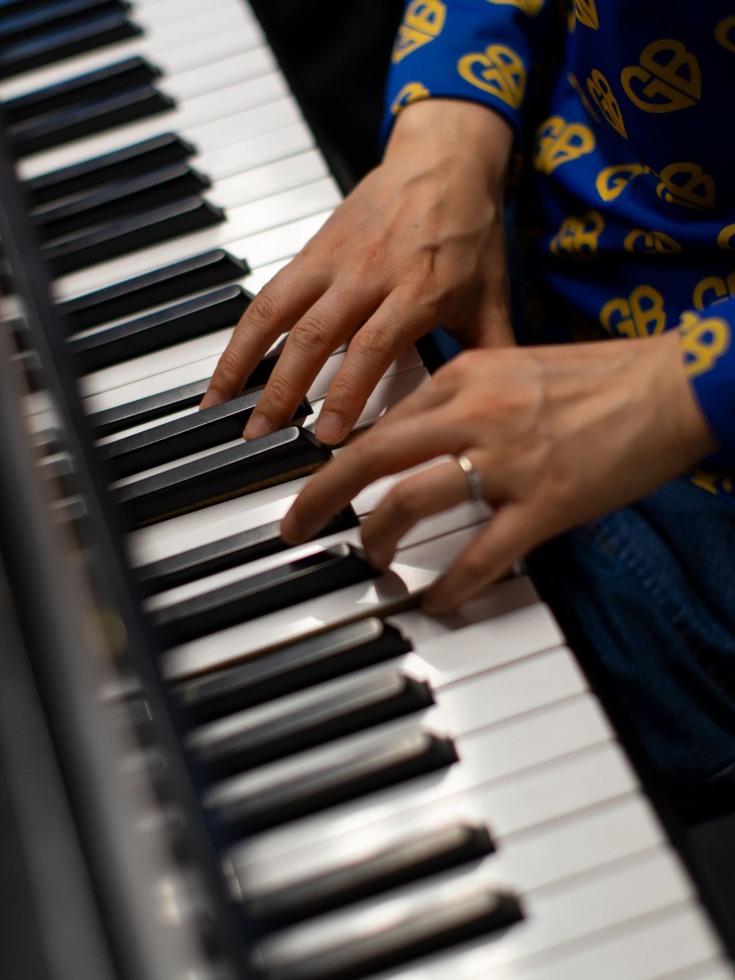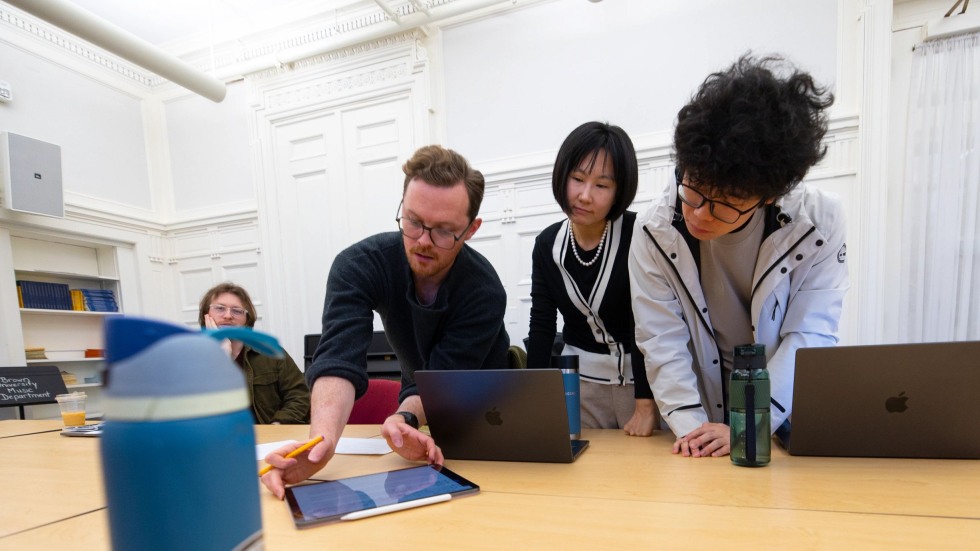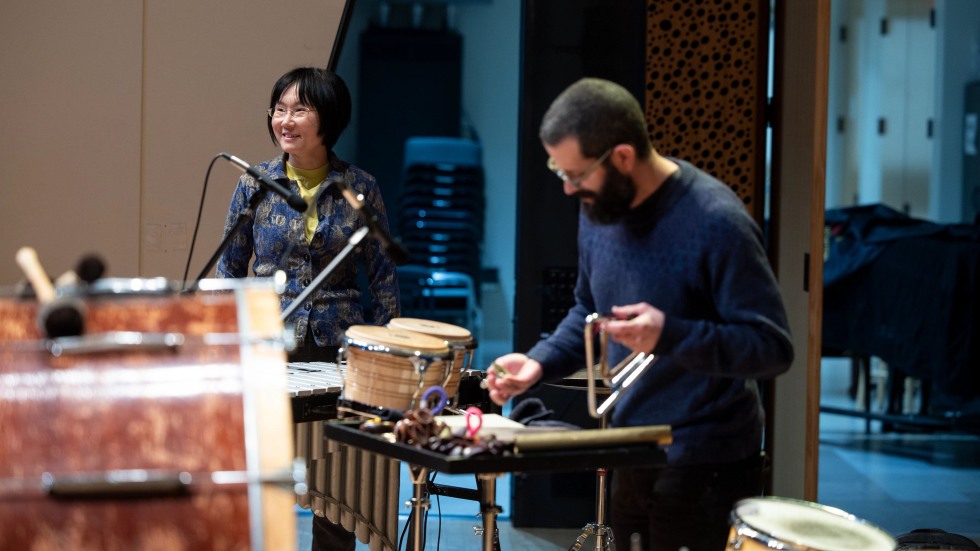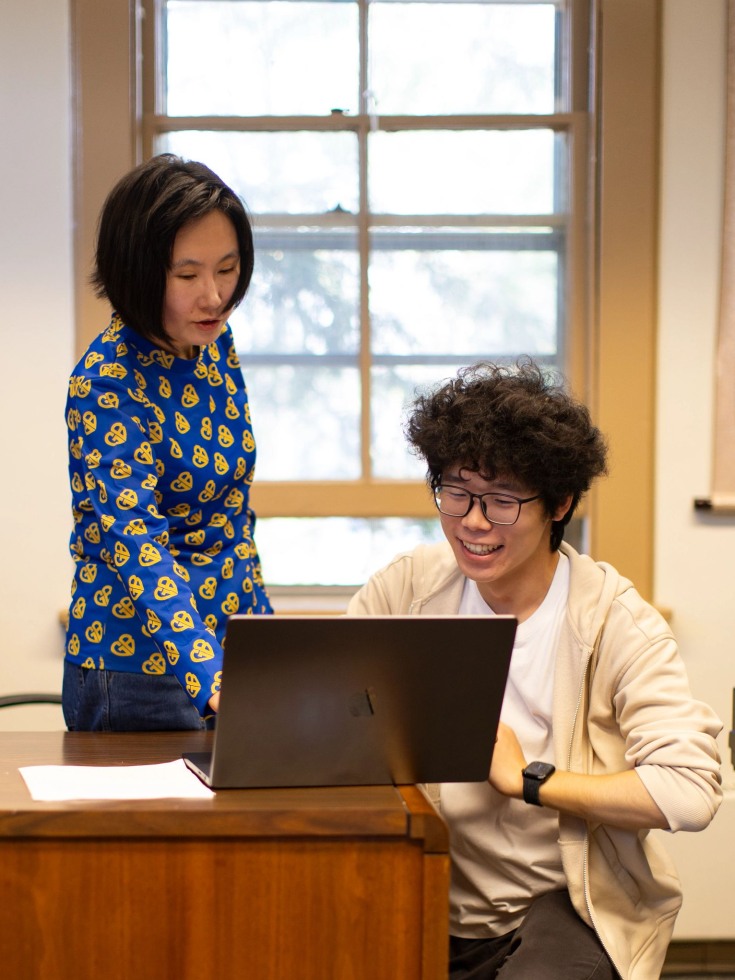PROVIDENCE, R.I. [Brown University] — Brown University Associate Professor of Music Wang Lu thinks of her body of musical work as a lifelong journal of human connection and cultural dialogue.
Growing up in a government-supplied apartment in the densely populated city of Xi’an during the era of China’s one-child policy, she was often alone with her thoughts and kept a journal during her childhood, filling it with observations, drawings and items she collected.
When she was 6, she began playing an upright piano that her grandfather had saved up for. She played and she listened, absorbing the soundscapes of her building.
“I could hear my friends practice piano, we could smell each other’s kitchens, we could hear each other screaming,” Lu said. “I realized my interest in music is actually through the journaling and storytelling.”
She was less enthusiastic about the pressure of perfection and committing to a rigid musical education, but Lu excelled, and she attended the Central Conservatory of Music in Beijing for her undergraduate studies. She next moved to the United States and earned her doctoral degree in composition from Columbia University.
“At the core of my creative practice is always the freedom of direct communication and fierce expression,” said Lu, now an award-winning composer and pianist whose works have been performed widely and internationally. “As I grew and began to embrace various musical styles and techniques, my music took adventurous sonic paths, ranging from orchestral and operatic to techno dance and multimedia.”
